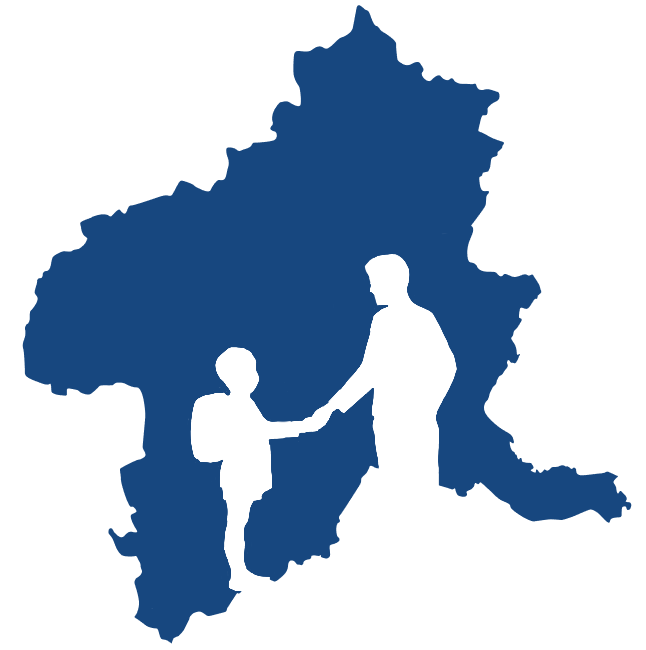It’s only natural to have a few questions when you’re moving across the world! Here’s 10 frequently asked questions from new JETs arriving in Gunma to put your mind at ease.
Q1: Where will I live?
Where you live will depend a lot on your placement. Gunma has both city and rural (inaka) placements. Also, “city” lines often stretch far from the city centers and sometimes far into the mountains, so placement in somewhere labeled a “city” doesn’t necessarily mean you will be downtown. Until you find out your exact location, it may be difficult to determine if you are in a more urban or more inaka setting.
Q2: What will my apartment be like?
Apartments in Gunma can vary as much as anywhere else. While there is a trend for placements that are farther from the urban centers to be larger and closer to be smaller, there are some inaka residences that are fairly small and some urban residences that are relatively large. The best way to find out about your living arrangements is to ask your Contracting Organization or predecessor.
Q3: Do I get to choose my apartment?
How you acquire your apartment can differ—sometime you’ll be given the choice of searching for an apartment, living in teachers’ housing, or you may be given no choice at all and simply assigned a place to live. Each of these has advantages and disadvantages, so you can benefit from all three situations.
Q4: What is there to do in Gunma?
Put short—a lot. Nearly every region of Gunma has its own attractions. The mountainous areas are very popular with outdoor enthusiasts from all over Japan, offering attractions such as mountain climbing, onsen, canyoning, rafting, and more. Each city has its share of entertainment, cultural and educational sites, etc, and Gunma has several large malls and shopping areas. If you ever manage to expend yourself of things to do in Gunma—which would be quite a feat—there is easy access to Tokyo, Nikko, Nagano, and other popular attractions areas.
Q5: What can you get at a conbini?
The combini, or convenience store, is quite an impressive establishment. Things that you can buy at the combini include: drinks, snacks, instant noodles, prepared food—from salads and onigiri to hot-dogs on a stick—toys, toiletries, socks/underwear/etc, alcohol, tobacco, and more. Also at the combini, you can pay many of your bills right at the register. Many combini now have computerized copy machines that can be used for purchasing tickets for transportation and attractions, printing documents from home, and more.
Q6: What will happen my first month in Gunma?
You will be arriving in late July/early August, which means that schools are right in the middle of summer vacation. You won’t be asked to teach any classes until school starts up again in early September, so you have a month to settle into your new surroundings and get set up with your bank account, registration, health insurance, and other important things.
Your first month is a great time to start building relationships with your coworkers, attend summer events with other JETs in Gunma, get to know your community, study Japanese, and start lesson planning for your self-introduction to your students.
Q7: How much money should I bring with me?
Unfortunately, you won’t get paid until AFTER your first month working on JET. You should have some money ready to go at the start to cover your set-up costs for housing, utilities, food, entertainment, and any surprise expenses you may incur.
For housing, some people may be asked to the pay first month’s rent, gas money, key money (a set fee, often equivalent to 1-3 months rent) and security deposits. Be prepared for these, as they can be expensive! Ask your predecessor about how much you’d be expected to pay for rent and utilizes.
Be sure to check the General Information Handbook (available online at www.jetprogramme.org) for the most up-to-date recommendations on money.
Q8: Is it true that Japan doesn’t use credit cards?
As a general rule, credit cards aren’t a common form of payment in Japan. While this is slowly changing and many larger stores and companies accept credit cards, cash is still the primary method of payment you will encounter in most situations. An old adage recommends you carry at least 1000 times your age in cash at all times. See Money in Japan for more information.
Q9: Will I need a car to get around my area?
If you are placed in a rural area, a car may be the most viable option for traveling farther than a short distance from your house. A large number of rurally placed Gunma JETs have a car and use it on a daily basis. However, you may be able to get away without one in a rural area. In more urban areas, many people do not need cars, but may chose to purchase them anyways for added convenience.
Q10: How accessible will my area be by public transportation?
Many areas of Gunma are accessible by some form of public transportation. However, for many areas, public transportation can be more sporadic or not available at all. Check out Getting Around in Gunma for more information.
If you have more questions, feel free to check out our guides for new JETs, or get in touch!

